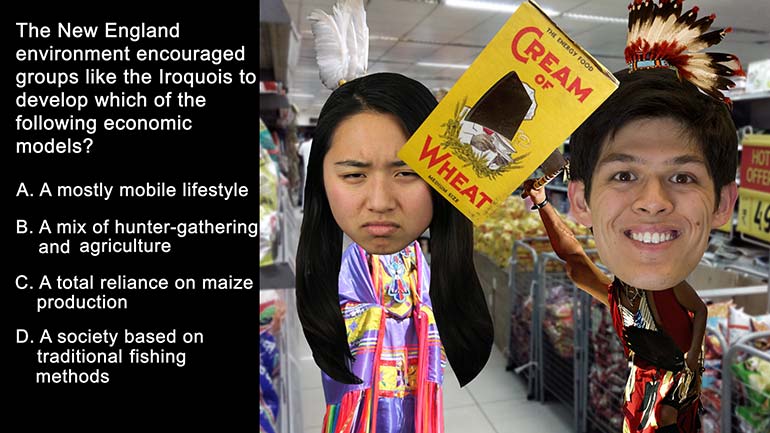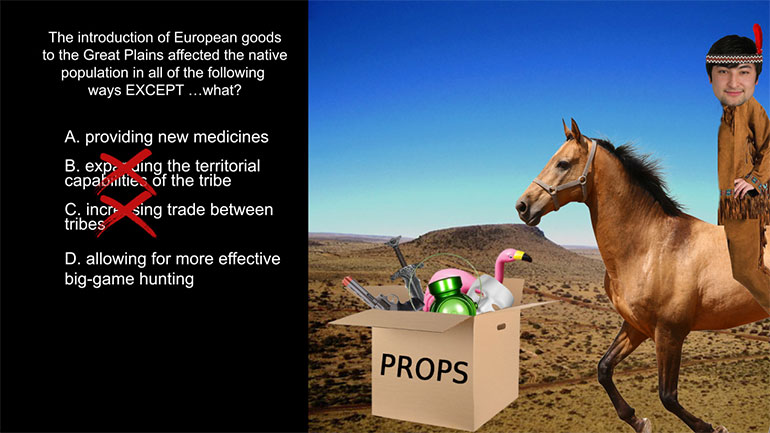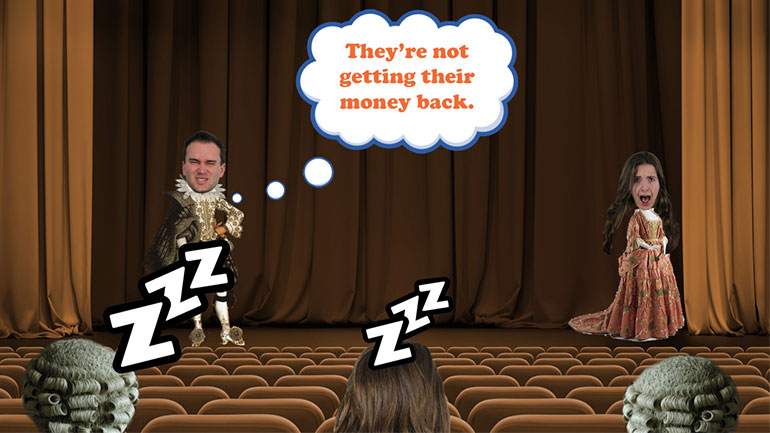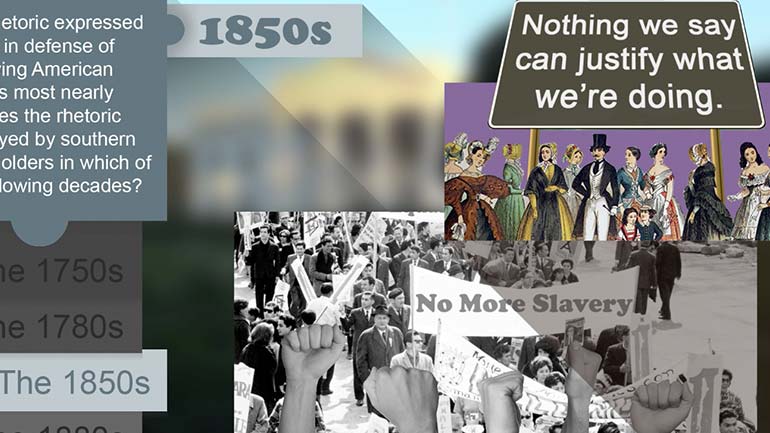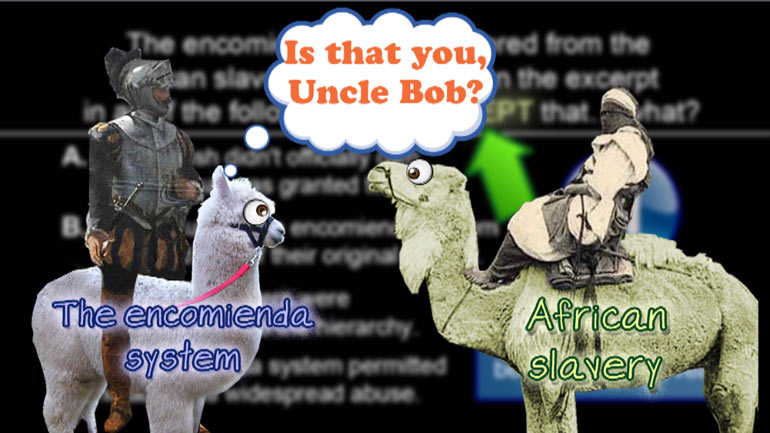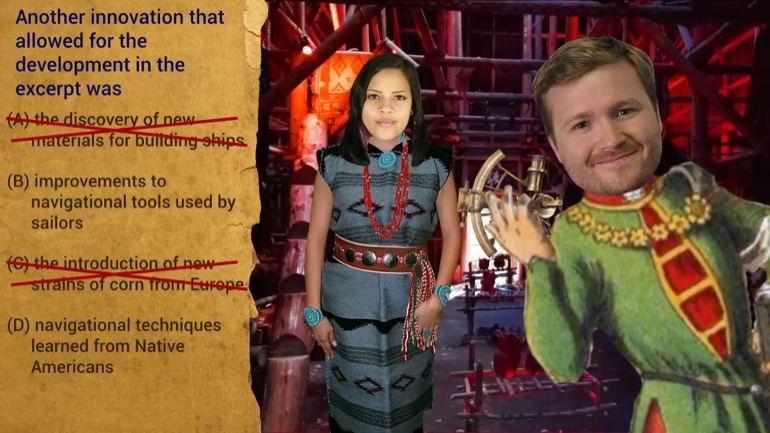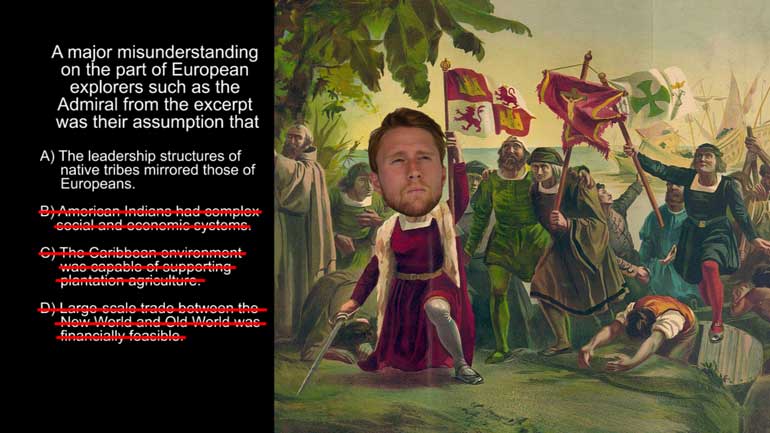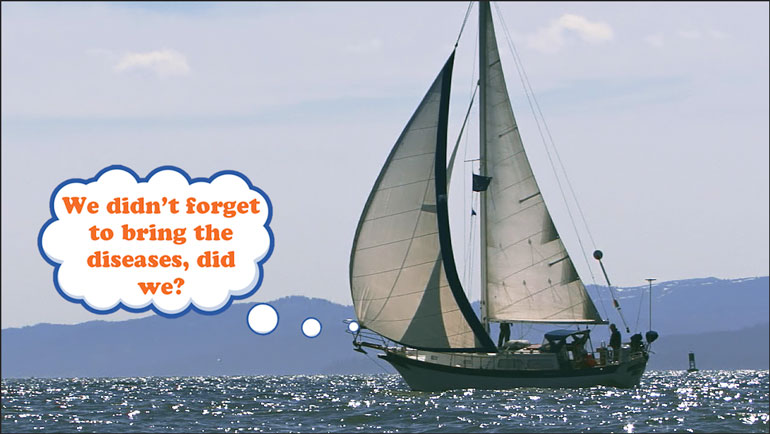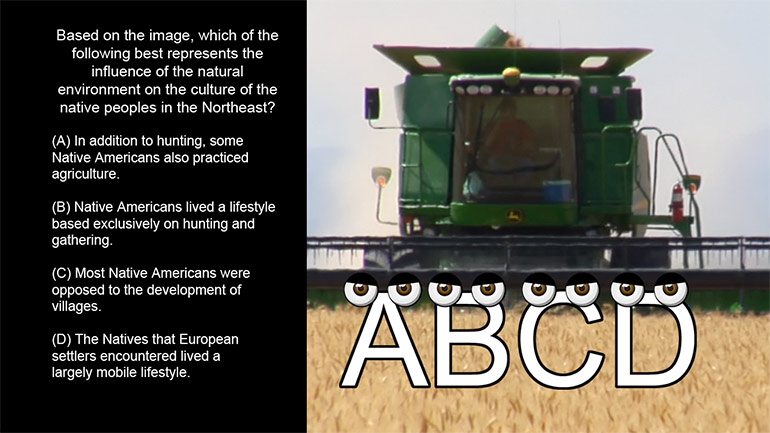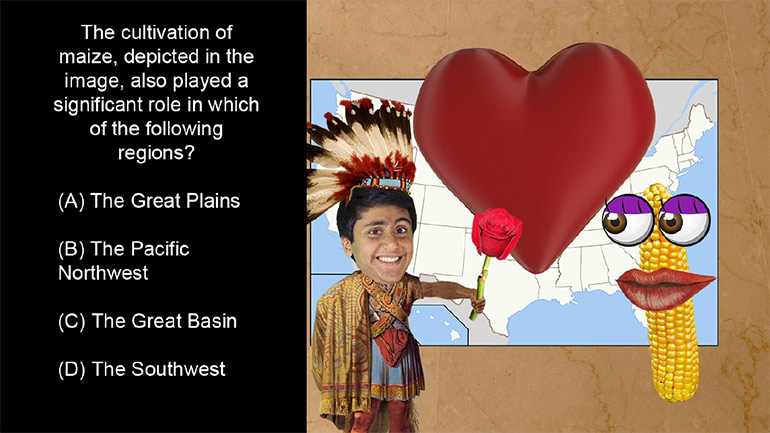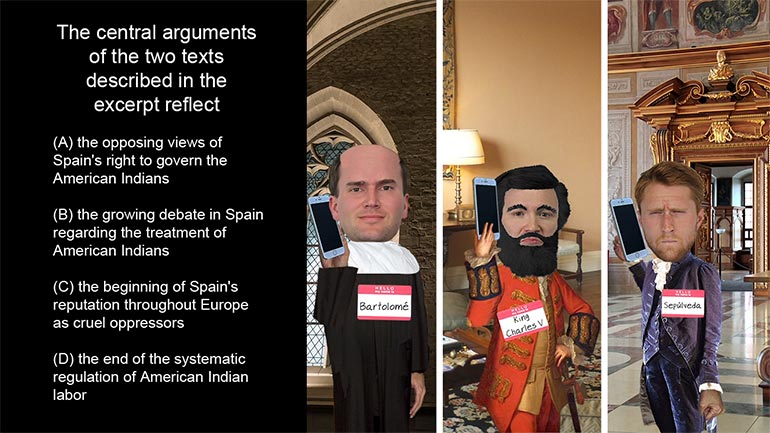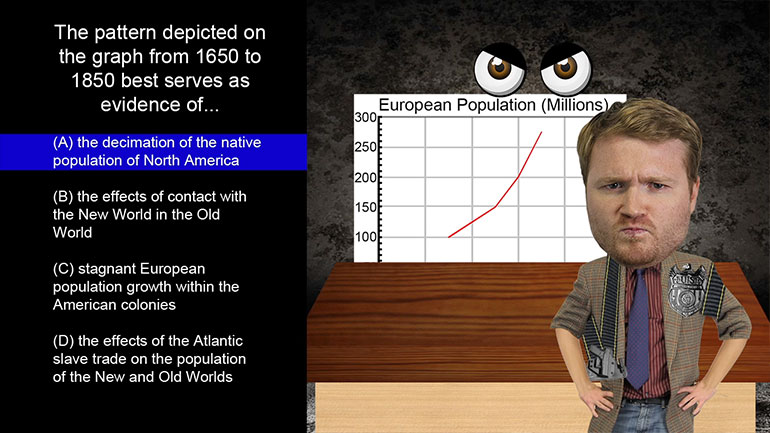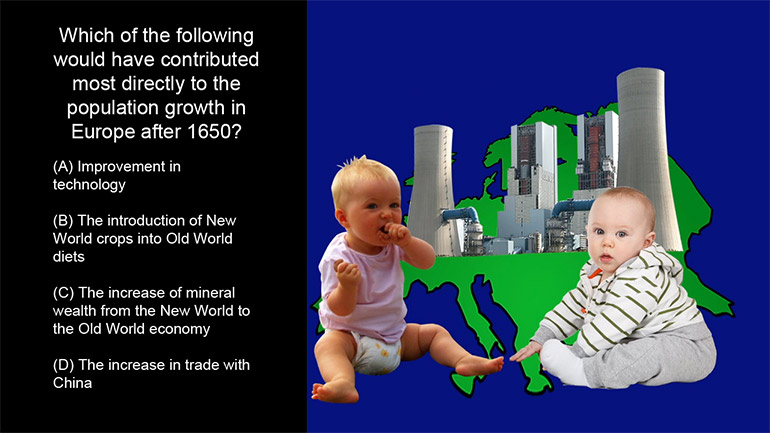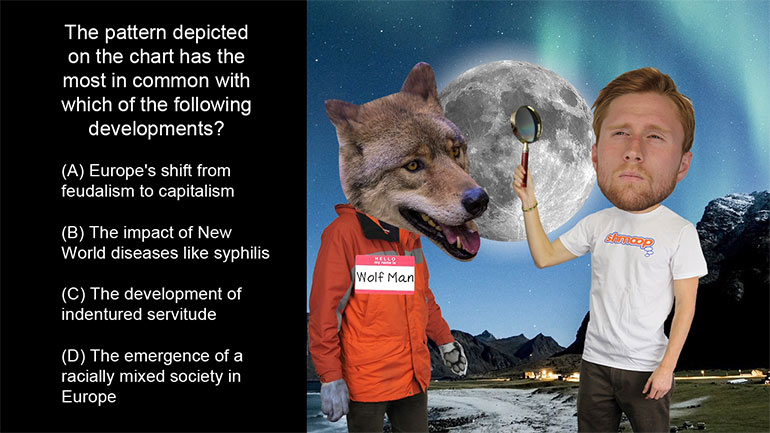ShmoopTube
Where Monty Python meets your 10th grade teacher.
Search Thousands of Shmoop Videos
Period 1: 1491–1607 Videos
Play All
What kind of economic model did New England's environment encourage the Iroquois, and similar cultures, to adopt?
AP U.S. History 1.2 Period 1: 1491-1607. The introduction of European goods to the Great Plains affected the native population in all of the follow...
AP U.S. History: Period 1: 1491–1607. Drill 1, Problem 3. Increased colonization of the New World was partly facilitated by which of the followin...
AP U.S. History: Period 1: 1491–1607 Drill 1, Problem 3. As a result of the increased contact between the New World and the Old World, Europe's p...
AP U.S. History 1.5 Period 1: 1491–1607. The rhetoric expressed above in defense of enslaving American Indians most nearly matches the rheto...
AP U.S. History: Period 1: 1491–1607. Slavery of Africans in the New World was possible partly because of...what?
AP U.S. History 2.2 Period 1: 1491–1607. The encomienda system differed from the African slave trade portrayed in the excerpt in all of the follo...
AP U.S. History 2.4 Period 1: 1491–1607. A major misunderstanding on the part of the European explorers such as the Admiral from the excerpt was...
AP U.S. History: Period 1 1491-1607 Drill 2, Problem 5. Inhabitants of the New World, like the "Cimaroons," who Sir Francis Drake mentions abo...
AP U.S. History 4.1 Period 1: 1491-1607. Which of the following 16th-century developments best supports the argument made in the excerpt?
AP U.S. History 4.2 Period 1: 1491-1607. One direct long-term effect of the process described in the excerpt was what?
AP U.S. History 3.4 Period 1: 1491-1607. The argument presented in the description of Sepulveda's work most closely parallels which of the followin...
AP U.S. History 3.1 Period 1: 1491-1607. Which of the following factors contributed most directly to the trend described in the excerpt?
AP U.S. History 3.5 Period 1: 1491-1607. The perspective of Las Casas's work as described in the excerpt reflects the continuation of which Spanish...
AP U.S. History Period 1: 1491-1607 Drill 3, Problem 2. The cultivation of maize, depicted in the image, also played a significant role in which of...
AP U.S. History 3.3 Period 1: 1491-1607. The central arguments of the two texts described in the excerpt reflect...what?
AP U.S. History 4.3 Period 1: 1491-1607. The pattern depicted on the graph from 1650 to 1850 best served as evidence of what?
AP U.S. History 4.4 Period 1: 1491-1607. Which of the following would have contributed most directly to the population growth in Europe after 1650?
For us at Shmoop, dramatic change means eating something other than a bologna sandwich, 4 carrots, and a juice box for lunch. Taco Tuesday is a big...
